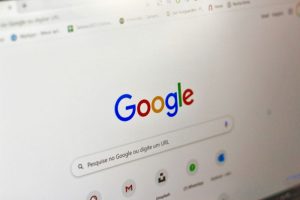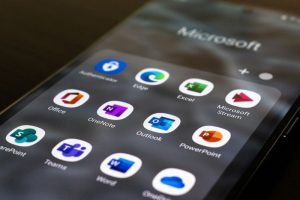US education technology contracts spark privacy concerns
The Ministry of Education has ties to big US technology firms such as Google and Microsoft – what does that mean for schools?

In government papers the Ministry of Education has documented links to big US technology firms like Google and Microsoft – including weekly meetings – sparking scrutiny over these companies’ influence in New Zealand schools.
The Ministry of Education currently spends over $10 million a year on software licenses with Microsoft and Google, ensuring schools use these programmes for free. Current contracts with Microsoft are worth $27 million over three years and $10.5 million with Google from 2018 – 24.
Read the Term 1 edition of School News HERE
A recent deal saw a new plan from the Ministry of Education that wanted a “closer, more collaborative relationship” with Microsoft. The plan also stated that the government was getting an “extremely large” discount from the firm which meant “great value for money”.

The paper also noted “a change of software technology would cause significant inconvenience and costs for schools, as they have built their teaching practices and school administration around the use of these products.”
Competition between providers ensures substantial discounts and benefits are given to education sectors from such EdTech companies, said the paper.
The Ministry of Education’s chief digital officer Stuart Wakefield told RNZ that the weekly meetings between the government and EdTech companies wasn’t important enough to record, though “the ministry does not hold regular meetings with any other EdTech providers.”
In a statement provided to an OIA from RNZ, the Ministry stated the meetings included discussion on “significant updates and future developments that may affect access” and work programmes.

The dominance of Microsoft and Google in New Zealand’s education industry has grown over time. The Ministry of Education has sought exemptions for an open tender for EdTech because of the dominance of Microsoft software, arguing “Microsoft licensing is currently deployed in many NZ schools.”
Recently, Google offered an additional discount on its technology and the ministry stated it “did not consider alternative technology as most schools were already using Google.
“No external experts were consulted in the decision to procure Google software,” read an earlier OIA response from MoE.
The Ministry also stated that increased uptake of US EdTech was part of the government’s policy in giving digital access to every child.
The influence of US EdTech companies has been scrutinised not only in New Zealand, but overseas. Concerns have been raised at the gathering of students’ information and how that data is used. There are also concerns about habituating students to certain types of technology.

In 2022, The Privacy Foundation reported the deals made between the government and US EdTech companies were “never specifically audited or checked against privacy risks for children.”
The study released by the foundation said there was a risk of “a surveillance environment that records children’s activities and keeps their data for future and unknown use.”
“No one is really checking that the software which is used by the New Zealand schools is creating that safe educational environment,” said Privacy Foundation report author Dr Marcin Betkier.
A UK study into EdTech also noted that when a child in class clicks on a link, the interaction is tracked by 40 third parties including ad services and analytics.
Schools are using at least 15 types of software, or they can use centralised contracts the Education Ministry has with Microsoft and Google, found The Privacy Foundation report.
Auckland sociologist Dr Caroline Keen said US EdTech was “very embedded in school systems now.”
Keen said she had been attempting to get authorities to regulate the firms since 2020, with little success.
Overseas, concerns about children’s privacy sparked lawsuits, investigations and clampdowns in the US.

At the time of the Privacy Foundation’s report, the Ministry of Education released a statement that it was working on improving privacy protections for online learning.
This included joining Australia’s Safer Technologies for Schools programme that checks security and privacy controls on EdTech products.
Wakefield said that the Ministry has “analysed Google and Microsoft against our internal privacy and procurement policies.
“We place reliance upon these independently audited certifications,” said Wakefield, referring to ISO certifications for privacy and the US Student Privacy Pledge.
“MoE privacy, data and digital teams continue to monitor, report and create policy where needed.”









